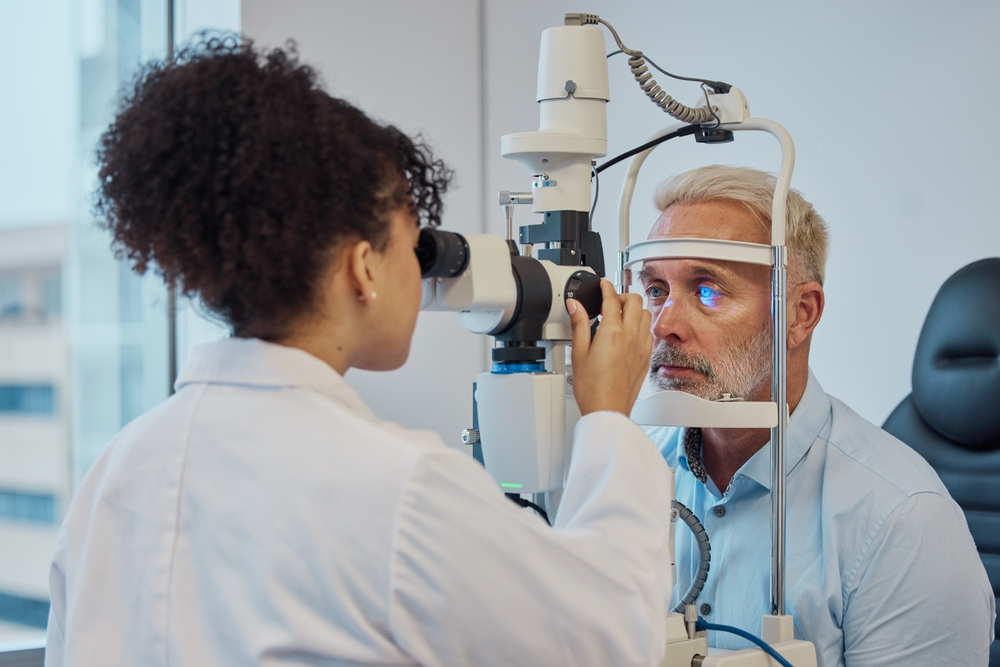Can Cataracts Come Back After Cataract Surgery?
December 20, 2023
Cataract surgery is a common procedure for adults to restore vision after cataracts develop. While cataract surgery may seem like a great option, you may have questions about how it actually works and whether or not it's effective.
After all, you likely don't want to have a treatment only to develop cataracts again in the future. Keep reading to learn more about cataracts and whether or not they can come back after cataract surgery!
What Are Cataracts? 
Your eyes have a natural lens. This lens is vital as it refracts light and allows you to see properly.
When the lens is healthy, it's clear and helps focus your vision. However, when the lens gets cloudy or blurry, it can make it difficult to see.
You may feel like everything looks a bit foggy, or as if you're seeing through a dirty window. Cataracts usually develop with age, but genetics, eye injuries, and medical conditions can also increase your risk of developing cataracts.
Are you experiencing symptoms of cataracts?
Schedule a Cataract Evaluation
Why Is Cataract Surgery Performed?
Cataract surgery is performed to restore vision affected by cataracts. This procedure is generally recommended if your cataracts are impacting your daily life.
Because cataracts cause blurry vision and other vision issues, they can make it difficult to do daily tasks, such as driving, cooking, reading, and much more. Cataract surgery may also be recommended when cataracts interfere with the treatment of other eye conditions.
Cataract surgery may be recommended in order for an eye doctor to see the back of your eyes to treat conditions like diabetic retinopathy.
What Happens During Cataract Surgery?
When you hear or read the word surgery, it makes sense to feel uneasy or alarmed. However, cataract surgery is a relatively simple process.
It only takes around an hour to complete and is done in an outpatient setting. The steps of cataract surgery generally go like this:
1. Dilate the Pupil
First, your eye doctor will use eye drops to dilate the pupil. You'll also get medications for numbing and relaxation.
2. The Procedure
During the cataract surgery, your cataract surgeon will make a tiny opening in your cornea in order to access your natural lens. After breaking it up into tiny pieces and removing them, your eye doctor will insert an artificial lens to take its place.
Once this new lens is in place, cataract surgery will be complete. The tiny opening in your eye heals naturally during your recovery without stitches.
3. Healing Process
In the first few days after cataract surgery, your vision may be a bit blurry. You'll go to follow-up visits to ensure healing and check your eyesight.
While there might be some itchiness or discomfort at first, it usually goes away within a couple of days. If you do have questions or concerns after the procedure, reach out to your eyecare team.
Is it time for you to have cataract surgery?
Schedule a Cataract Evaluation
Why Can't Cataracts Come Back After Surgery?
Since your eye doctor removes your natural lens and replaces it with an artificial one during cataract surgery, cataracts can't occur again. The artificial lens, known as an intraocular lens, can't develop cataracts.
Instead, it remains clear throughout your lifetime. Because of this, cataract surgery has a high success rate and is excellent for treating cataracts once and for all.
However, as with most medical treatments, there are some potential side effects. One of the most common is called posterior capsular opacification, or PCO.
 What Is PCO?
What Is PCO?
After cataract surgery, your eye will heal. While the IOL, or intraocular lens, can't develop cloudiness, the lens capsule can.
The lens capsule covers and protects the lens, and it can also get blurry. Sometimes, after cataract surgery, this capsule, which is made of a thin membrane, can cloud.
This can happen because of the development of scar tissue. When this occurs, you may notice a return of cataract symptoms, such as blurry vision or dulled colors.
Luckily, there is a quick and easy treatment available to restore your vision affected by PCO.
How Is PCO Treated?
If you develop PCO, an ophthalmologist can perform a fast and effective laser procedure to clear the lens capsule. Unfortunately, this condition won't stop on its own, so treatment is needed to restore your vision.
Posterior capsular opacification is treated through an outpatient procedure that's even less invasive and more efficient than cataract surgery. So, you'll be back to your daily life in no time.
Set Up A Consultation For Cataract Surgery
Cataract surgery ensures you'll never get cataracts again, so it might be the best option to improve your vision and quality of life. The best way to know if it's time for cataract surgery is to request a consultation at Arlington Eye Center.
If you suspect you have PCO or any other complications after cataract surgery, we are also here to assist you with treatment.
Are you experiencing blurry vision? Schedule a cataract evaluation at Arlington Eye Center in Arlington, VA, today!



